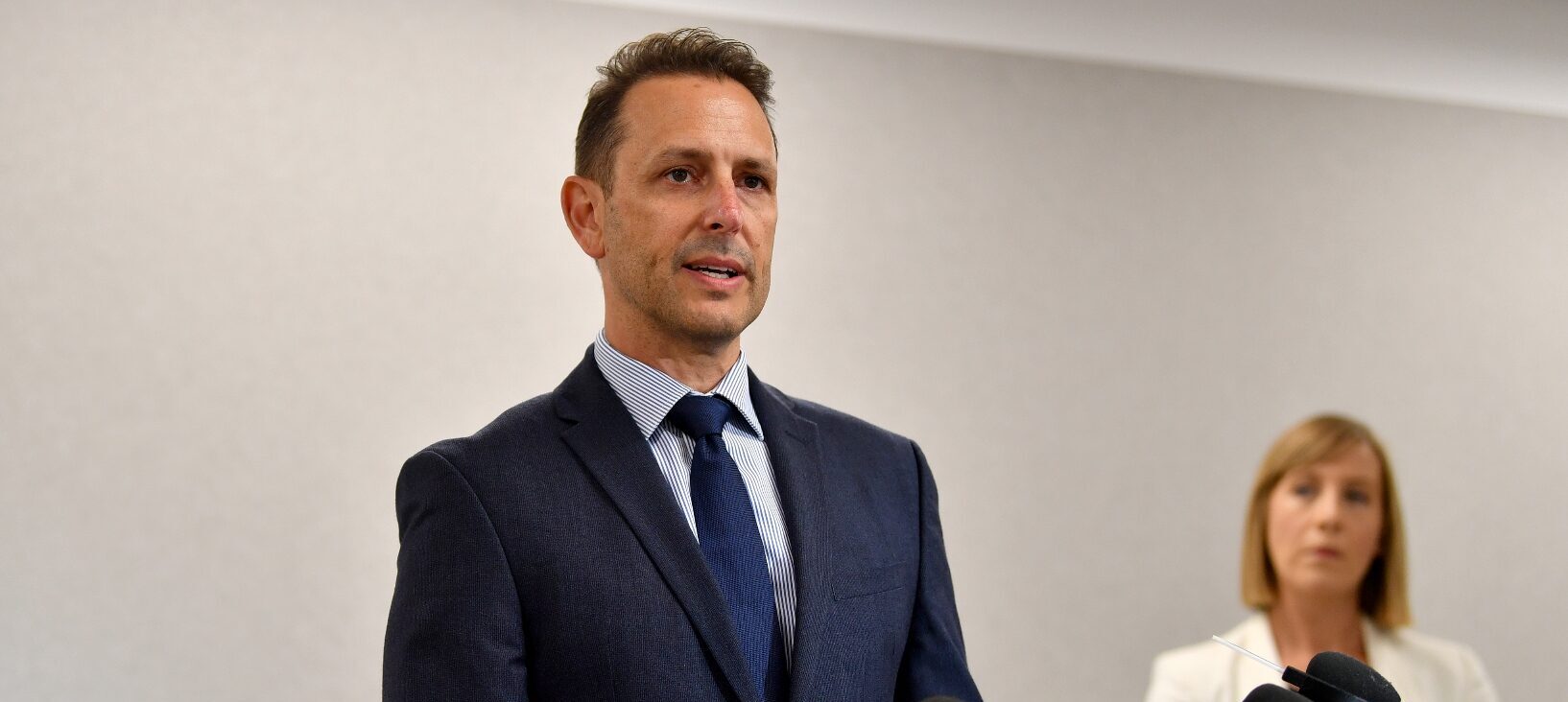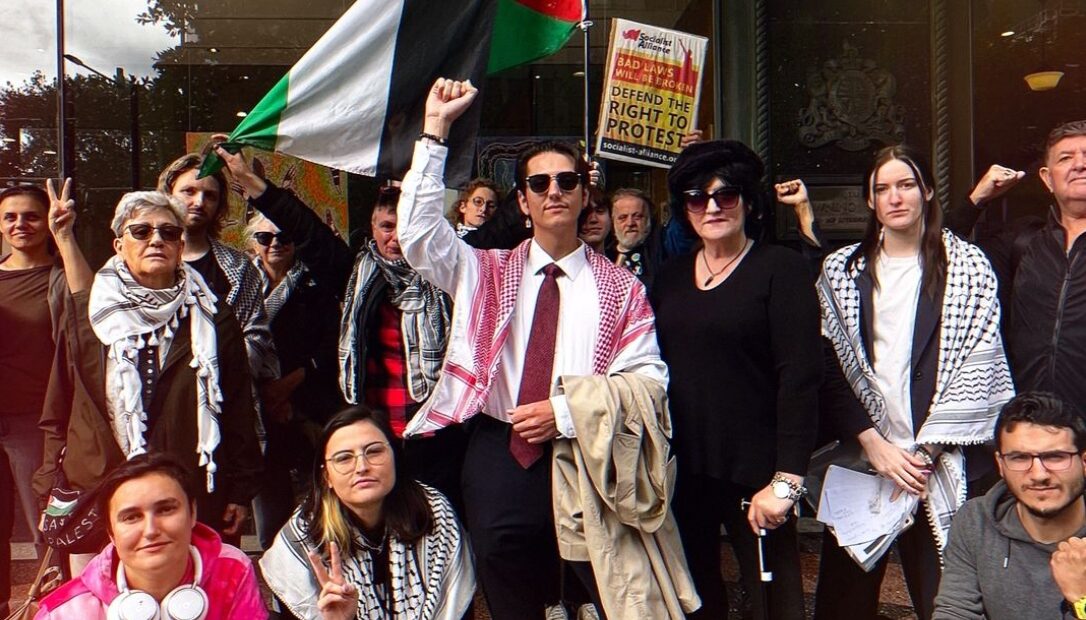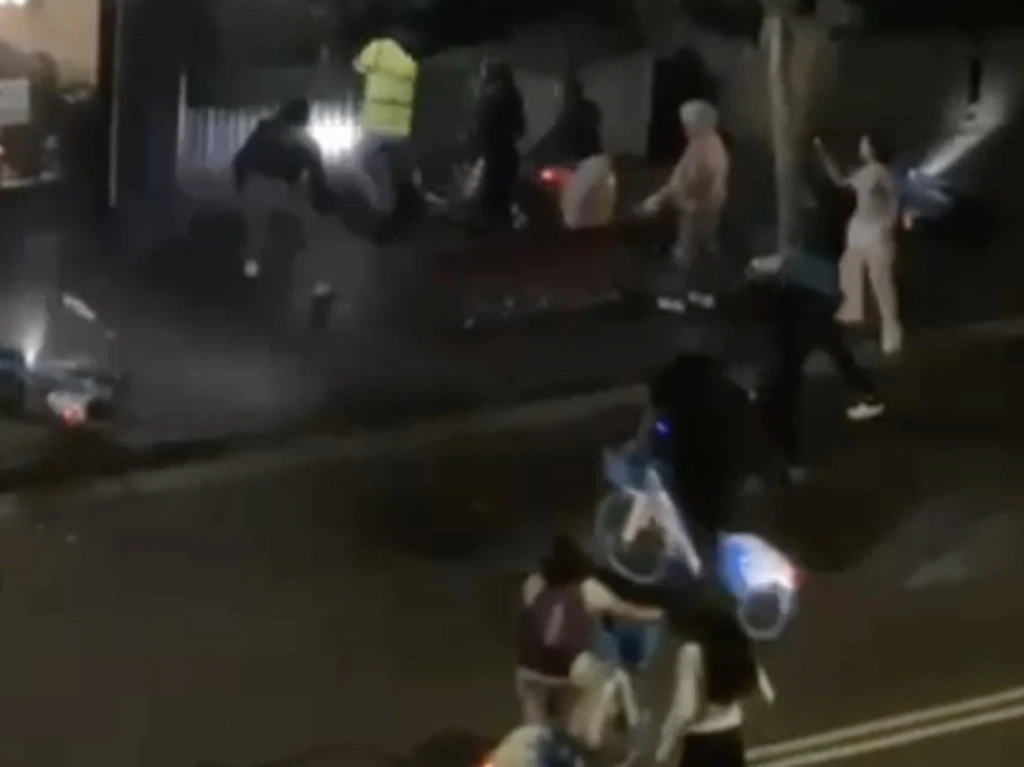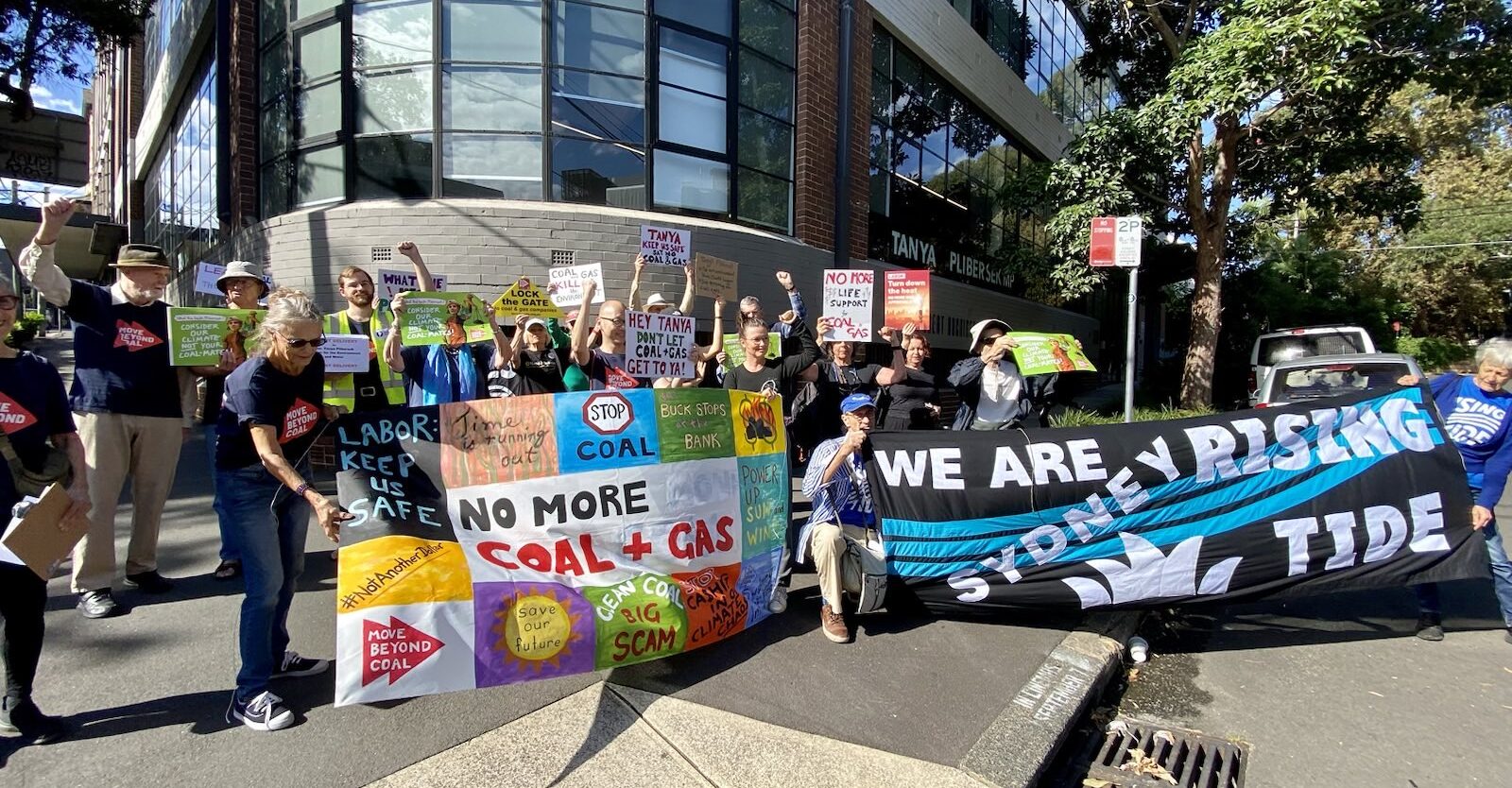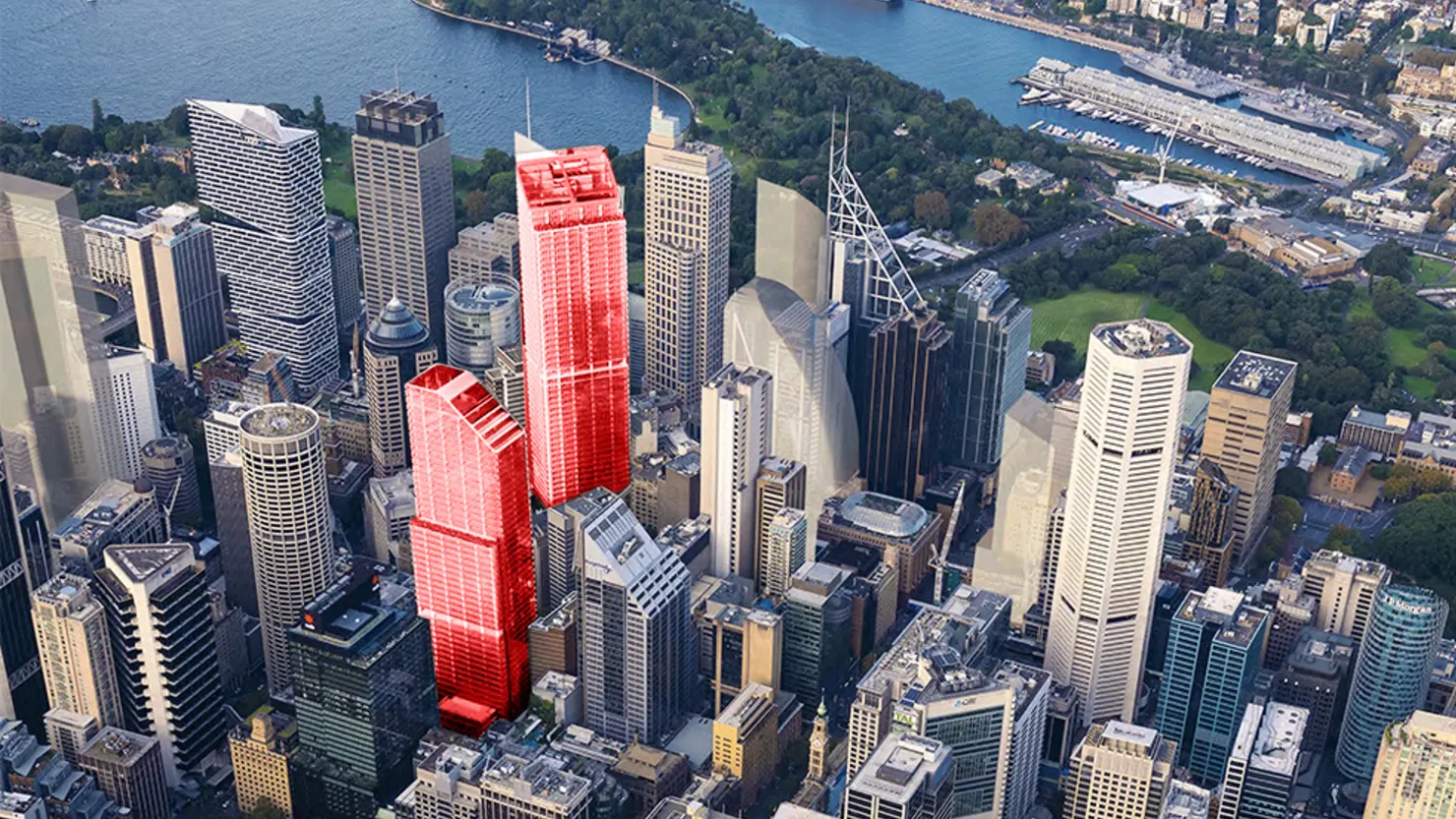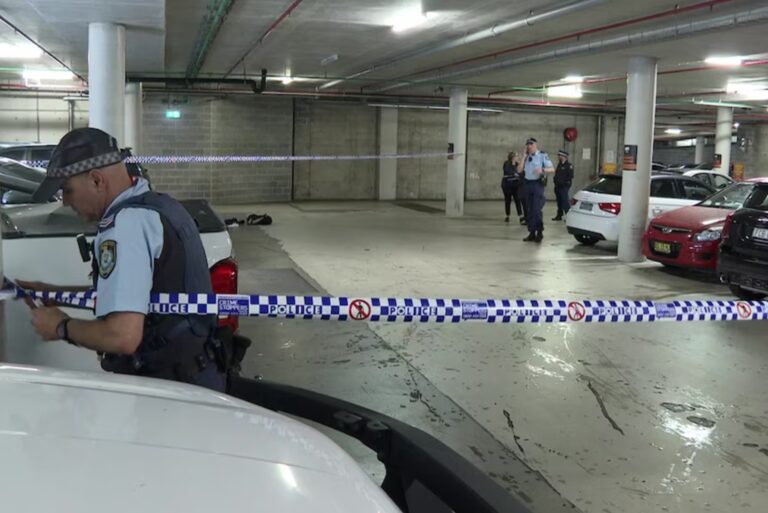
Calls for Australian commitment to anti-nuclear treaty
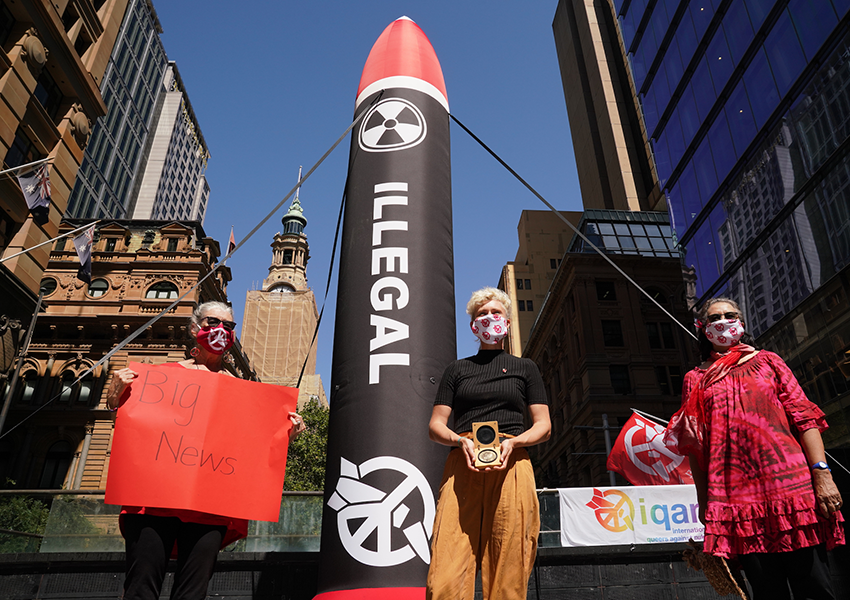
By ALLISON HORE
A seven meter tall inflatable nuclear missile was erected in Martin Place on Friday to recognise a significant milestone in the campaign to abolish anti-nuclear weapons.
It was just one of many actions around Australia in celebration of the the 2017 UN Treaty on the Prohibition of Nuclear Weapons (TPNW) coming into international law. The TPNW is significant as it is the first treaty to comprehensively ban nuclear weapons on humanitarian grounds. So far, 86 states have signed it and now 51 countries have ratified it.
Entry into force of the treaty is significant as it sets the standard that nuclear weapons are illegal and illegitimate for all states
But the protest on Friday wasn’t just a celebration of the milestone, it was also a call to action. Despite the nation’s commitments under the 1970 nuclear Non-Proliferation Treaty, Australia isn’t one of the 51 countries who have signed or ratified the treaty.
The protest at Martin Place was organised by the International Campaign to Abolish Nuclear Weapons (ICAN), a coalition of non-governmental organisations which campaigns for nuclear disarmament in more than one hundred countries.
Founded in Australia, the international organisation was awarded the 2017 Nobel Peace Prize for their work drawing attention to “the catastrophic humanitarian consequences of any use of nuclear weapons” and their effort to achieve a treaty-based solution to the issue.
“The Morrison government claims to be in favour of disarmament but refuses to support this treaty,” said Gem Romuld, the Director of ICAN Australia.
“It’s high time the Australian government followed New Zealand and most other countries in our region and got on the right side of history.”
Weapons testing in Australia
The treaty would be especially important for Australia, given the nation’s long history as a site for weapons testing, as it is the first to promise assistance for the victims of atomic bombs and nuclear weapons testing.
Britain conducted 12 nuclear test explosions in Australia between 1952 and 1957. Hundreds more minor tests of radioactive materials were also carried out up until 1963. These tests caused untold health problems for the Indigenous people who lived on the land where the testing took place and little compensation whatever offered. A report from a Royal Commission into the tests concluded the amount of compensation offered in these cases was “ludicrous” and nothing more than a “token gesture”.
Despite the treaty’s international significance there is still a way to go before the world commits to going nuclear-free.
None of the world’s 9 nuclear powers- the USA, China, Russia, France, the UK, India, Pakistan, Israel and North Korea- have signed or ratified the treaty. Countries who rely on other nations’ weapons for their security, including Australia, Japan and South Korea, are also yet to commit.
“The international community is demanding an end to nuclear weapons, which pose an unacceptable danger to every single one of us every day that they stand ready to be launched,” said Ms. Romuld.
ICAN encourages people who are concerned about Australia’s lack of commitment to the treaty to write to their local members and ask them to show their support for it.
So far 88 Federal MPs and Senators from across the political spectrum have gotten on board the campaign for Australia to join the treaty. Member for Sydney Tanya Plibersek and Labor leader Anthony Albanese, who have committed to ratifying the treaty in parliament, are among them.
In NSW, 25 members of parliament and legislative council members back the ban. They include Independent Alex Greenwich and Jamie Parker and Jenny Leong of the Greens.





